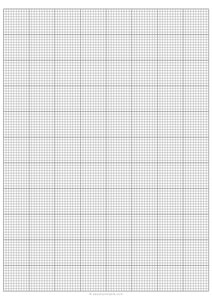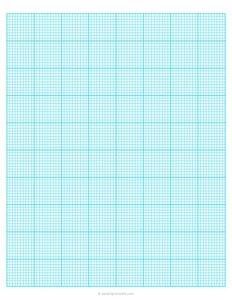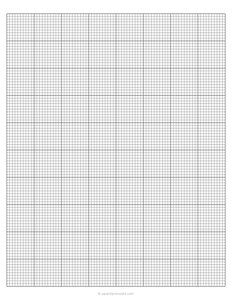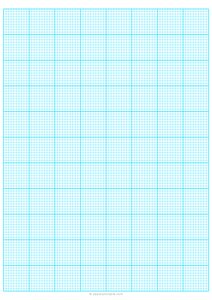1/10 inch Engineering Graph Paper
Download engineering graph paper in standard and metric scales. These graph papers consist of set of lines with varying thickness at regular intervals. Standard sizes includes 1/4", 1/5", 1/8" and 1/10" grids.
Recommended: Check out this Engineering Graph Paper Maker to create custom style printable graph papers.
Showing 1-4 of 4 records
1/10" Engineering Graph Paper - A4
1/10" Engineering Graph Paper - Blue
1/10" Engineering Graph Paper
1/10" Engineering Graph Paper - A4 - Blue
Engineering graph paper, also known as engineering pad or engineering paper, is a specialized type of graph paper commonly used by engineers, architects, and drafters for technical drawings, diagrams, and mathematical calculations.
It features a grid pattern of fine lines that are evenly spaced, typically with a heavier line every five or ten squares for easier reading and drawing.
Features and Uses:
Here are some common information about features and uses of engineering graph papers.
- Grid Pattern: The grid pattern on engineering graph paper consists of evenly spaced squares. The spacing between the lines may vary depending on the specific requirements of the project or the preferences of the user. Commonly used spacings include 1/4 inch, 1/5 inch, or 1/10 inch.
- Heavy Lines: Engineering graph paper often includes heavier lines at regular intervals (usually every five or ten squares) to facilitate easier counting and measurement. These lines help to segment the grid into more manageable sections.
- Preprinted Information: Some engineering graph paper may have preprinted information such as title blocks, margin lines, or other reference markings to assist in organizing and documenting technical drawings.
- Versatility: Engineering graph paper is versatile and can be used for various purposes including sketching, drafting, plotting graphs, performing calculations, drawing diagrams, and creating scaled drawings.
- Technical Drawings: Engineers and architects commonly use engineering graph paper for creating technical drawings such as floor plans, schematics, circuit diagrams, structural designs, and mechanical drawings. The grid pattern helps to maintain accuracy and consistency in these drawings.
- Graphing and Plotting: Engineering graph paper is also suitable for graphing mathematical functions, plotting data points, and visualizing mathematical relationships. The grid provides a convenient framework for accurately plotting points and drawing curves.
- Calculations: The grid layout of engineering graph paper facilitates mathematical calculations, especially when dealing with graphs, charts, and geometric figures. Engineers and scientists often use it for calculations involving dimensions, angles, proportions, and other numerical values.
- Design and Prototyping: Engineering graph paper is useful for designing and prototyping various projects, including electronic circuits, mechanical components, architectural layouts, and industrial designs. It allows engineers to sketch out ideas, refine designs, and visualize concepts before moving on to more formal drafting processes.
- Education: Engineering graph paper is commonly used in educational settings for teaching mathematical concepts, geometry, drafting skills, and engineering principles. Students use it to practice drawing diagrams, plotting graphs, and solving mathematical problems.
In summary, engineering graph paper are widely used by engineers, architects, drafters, students, and anyone else involved in technical drawing, design, or mathematical analysis. It's grid pattern, versatility, and convenience make it an essential component of many engineering and design projects.




